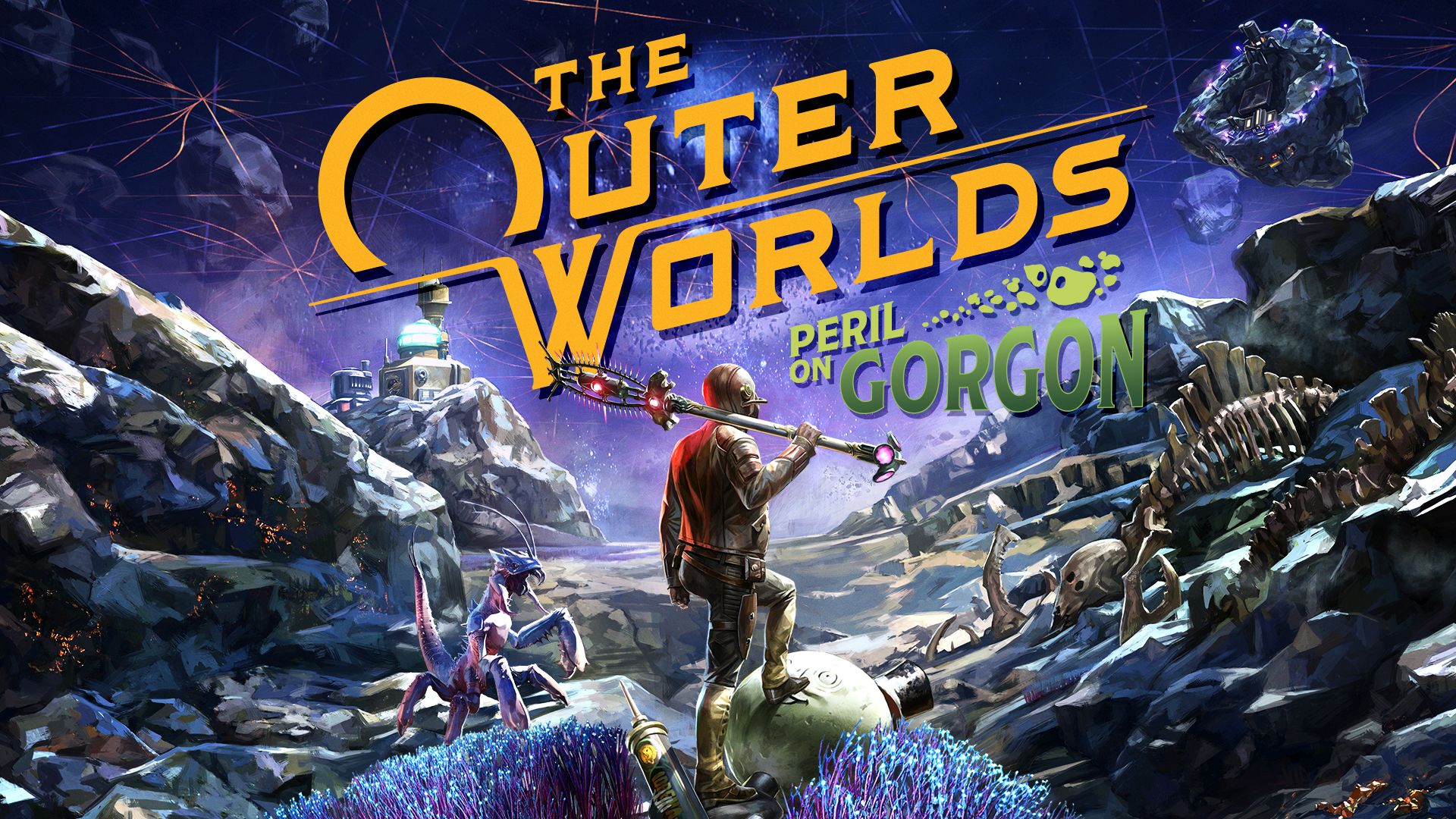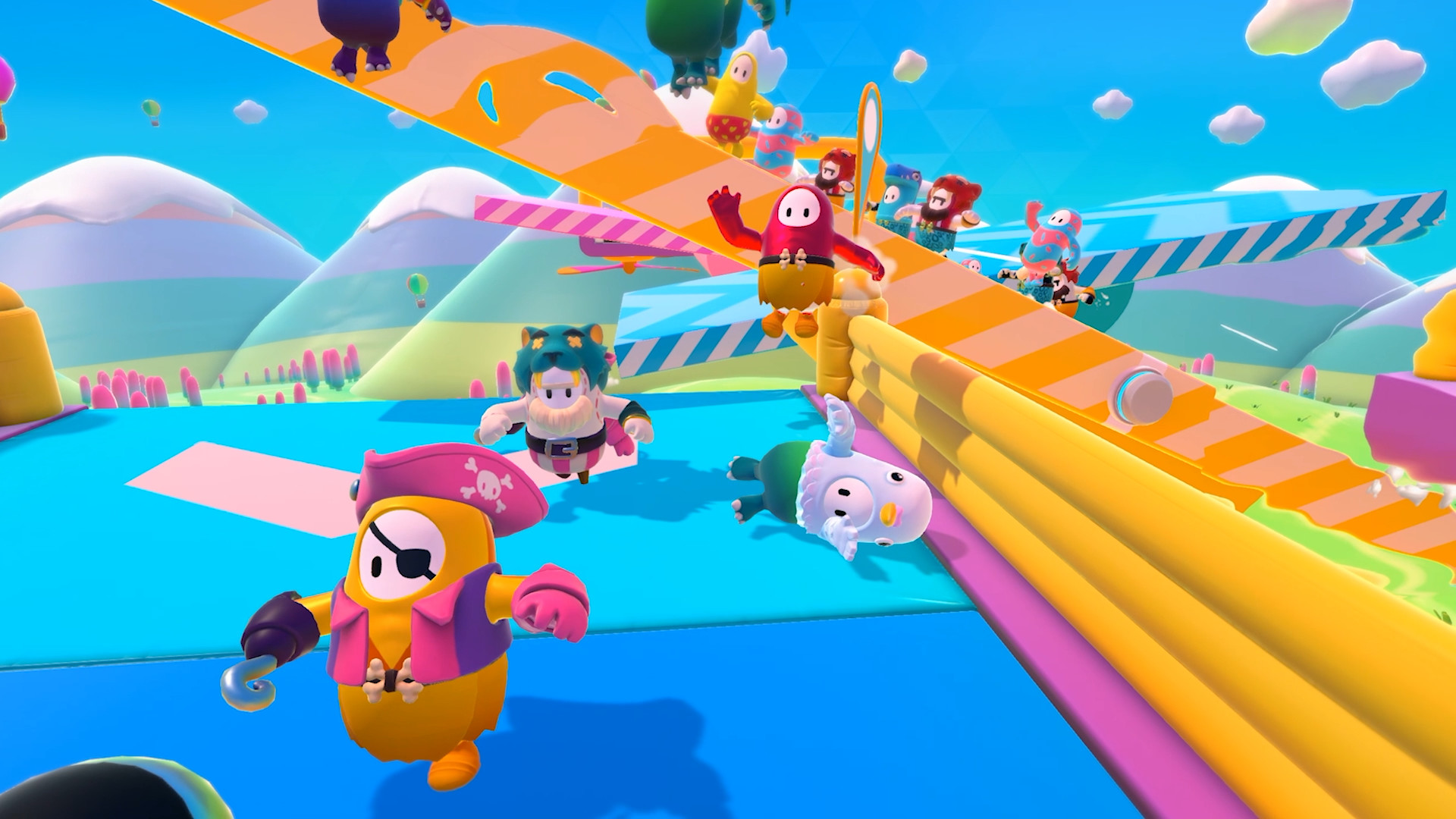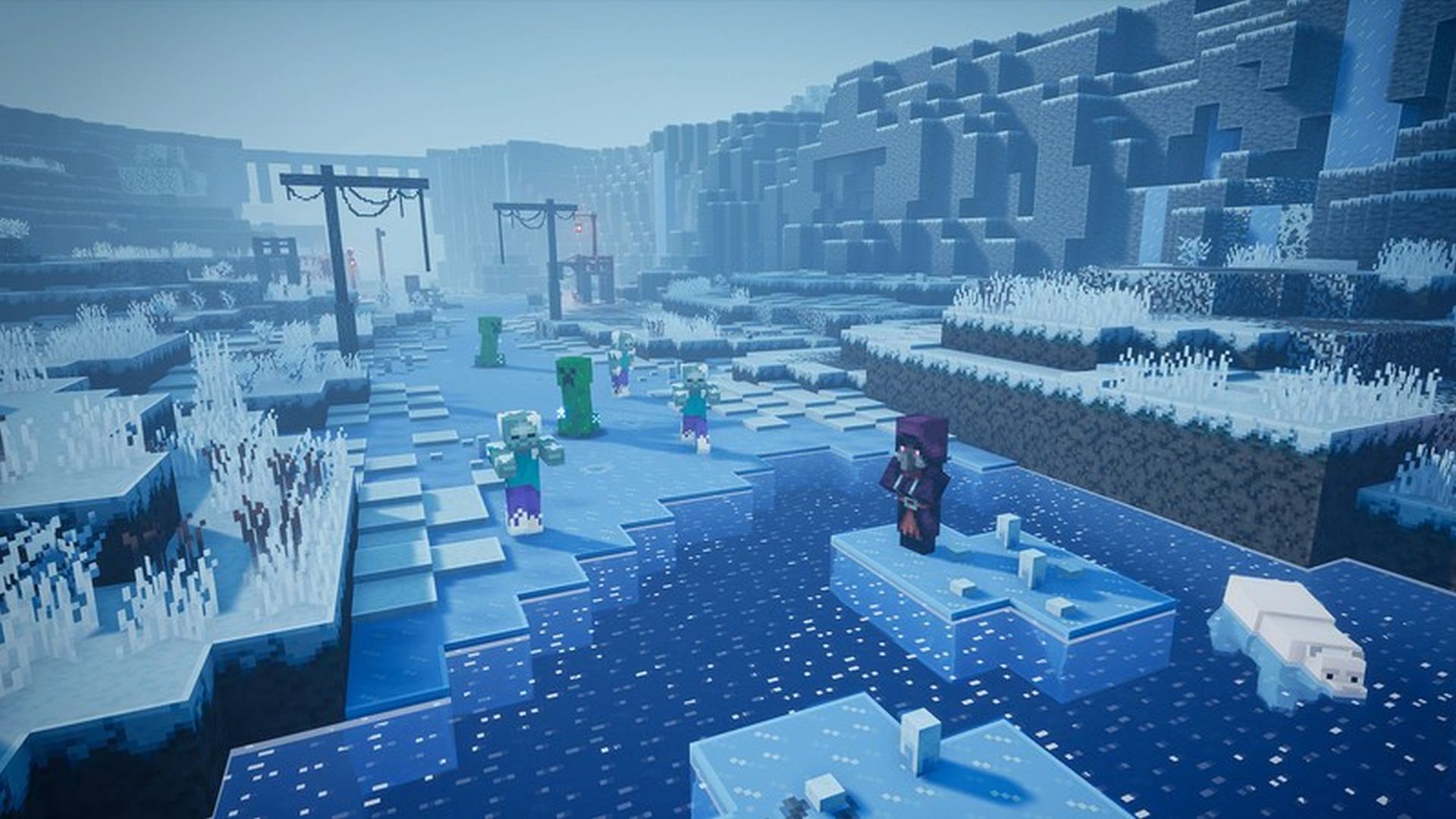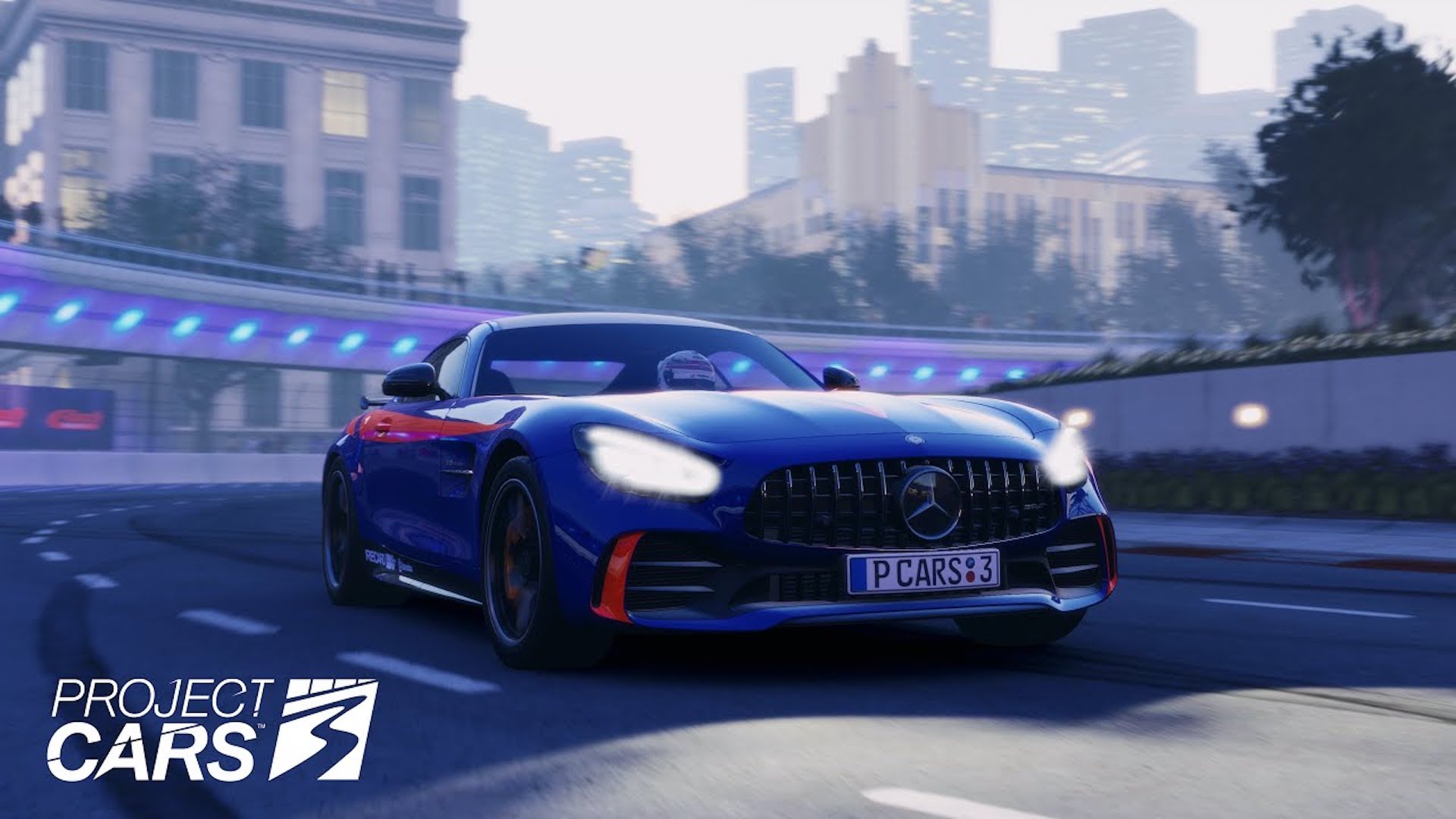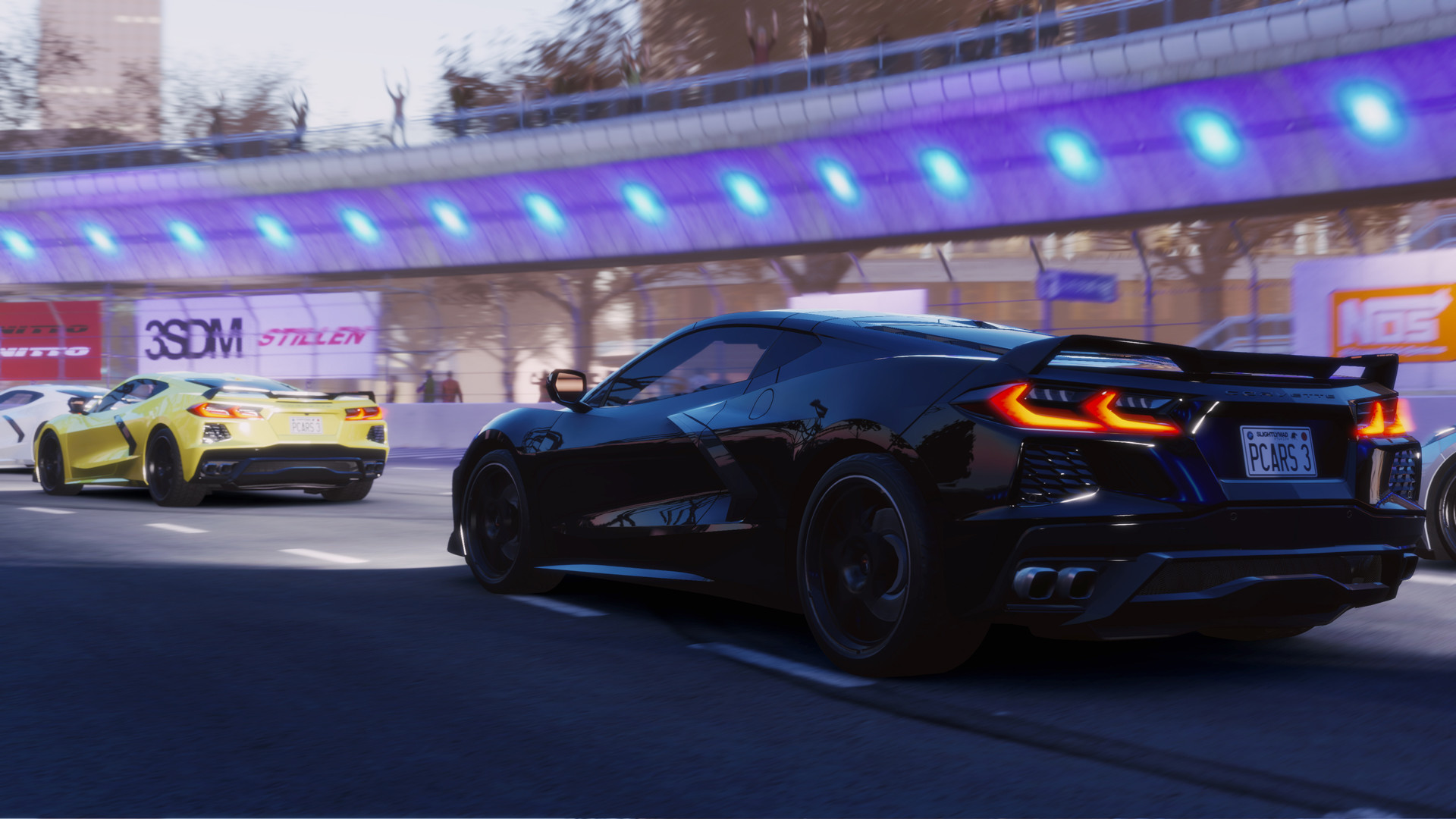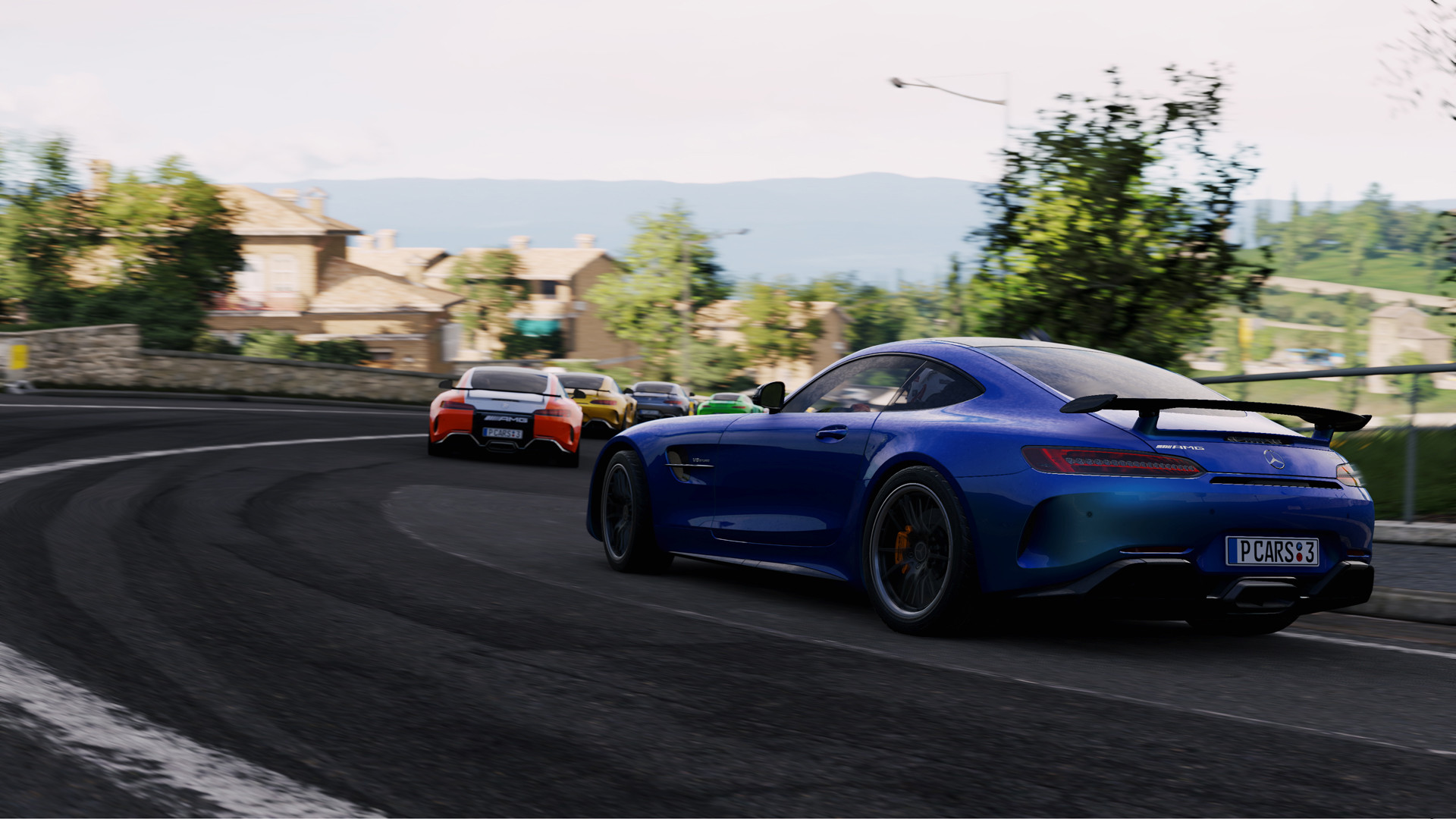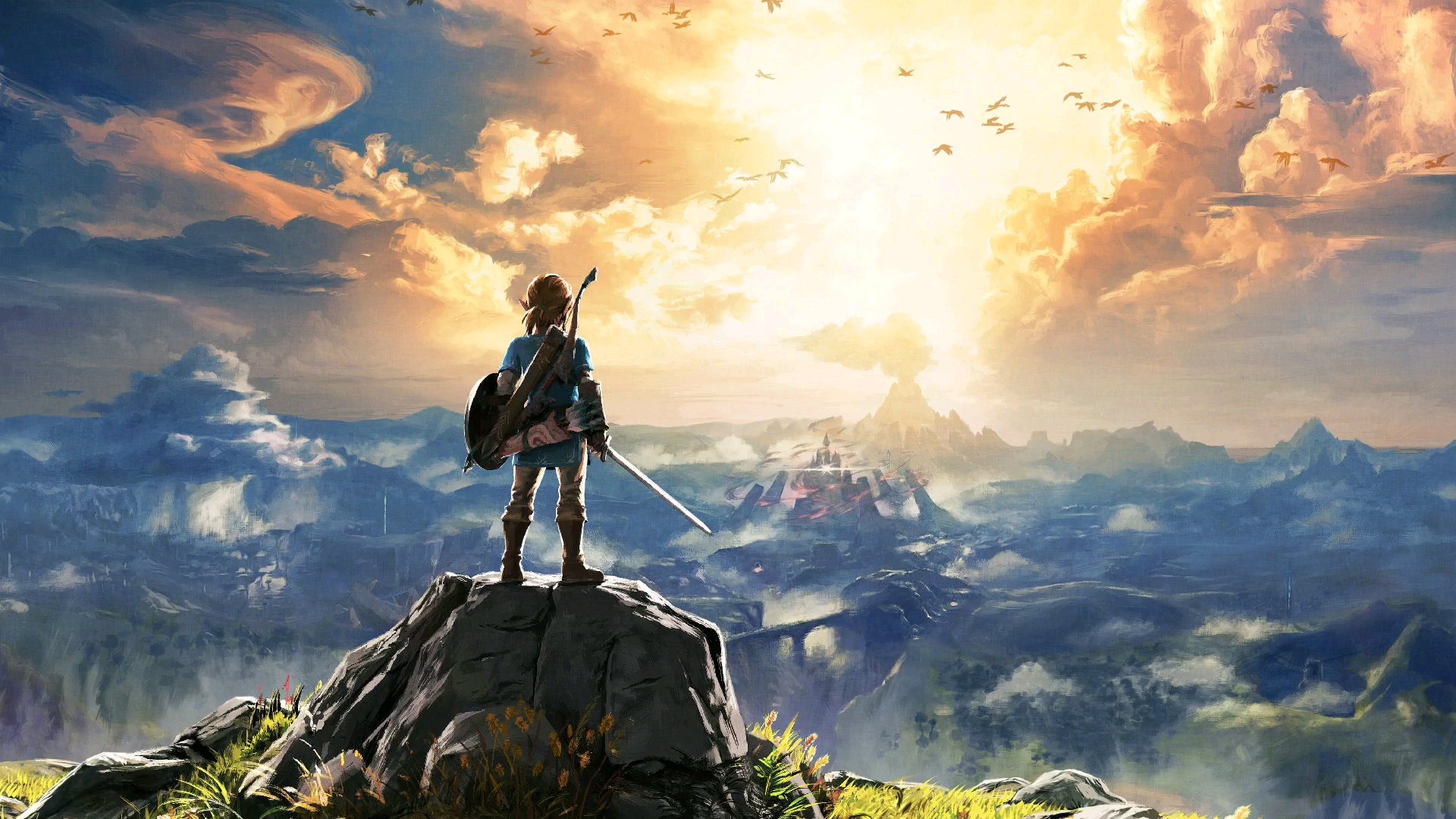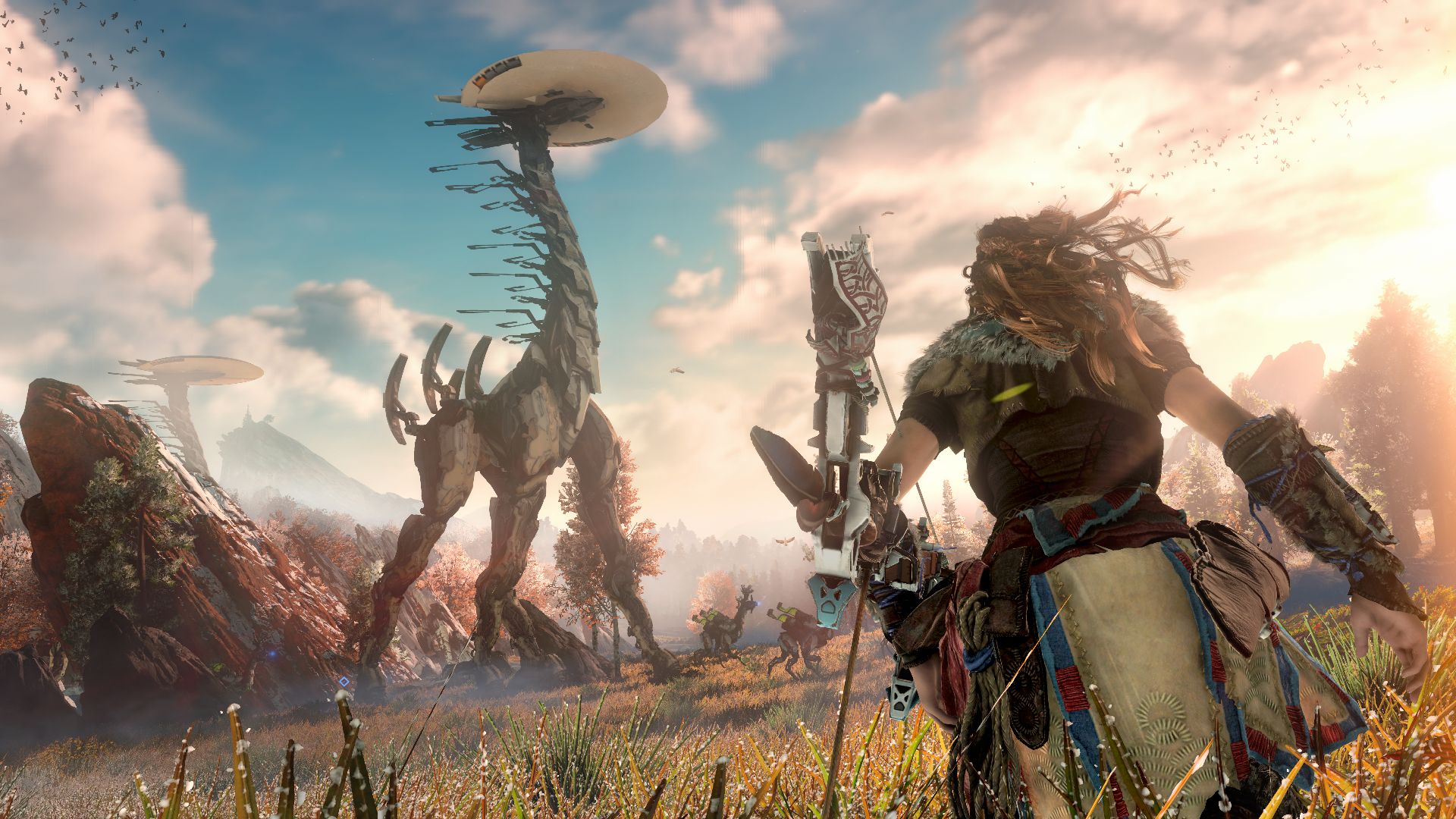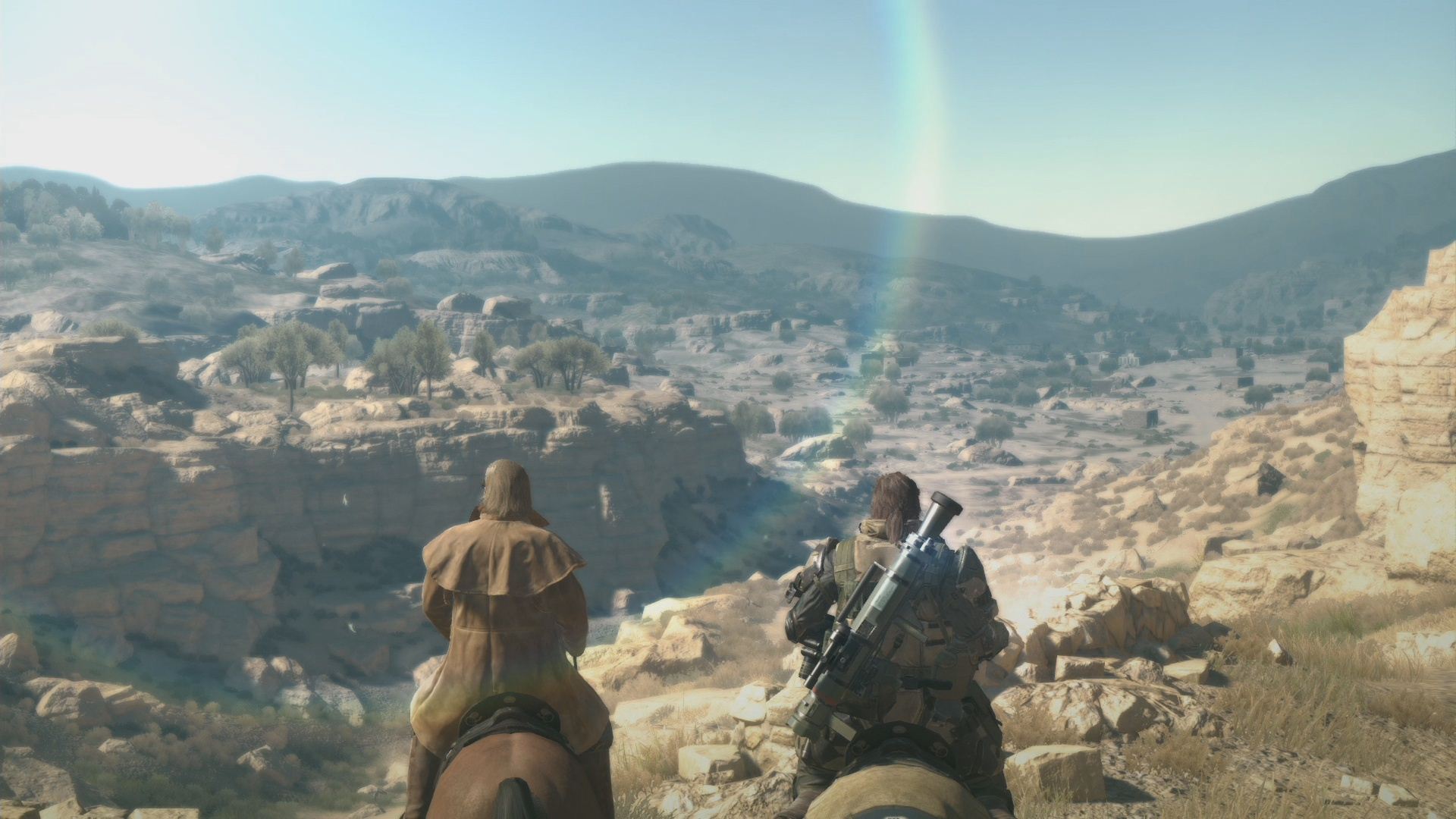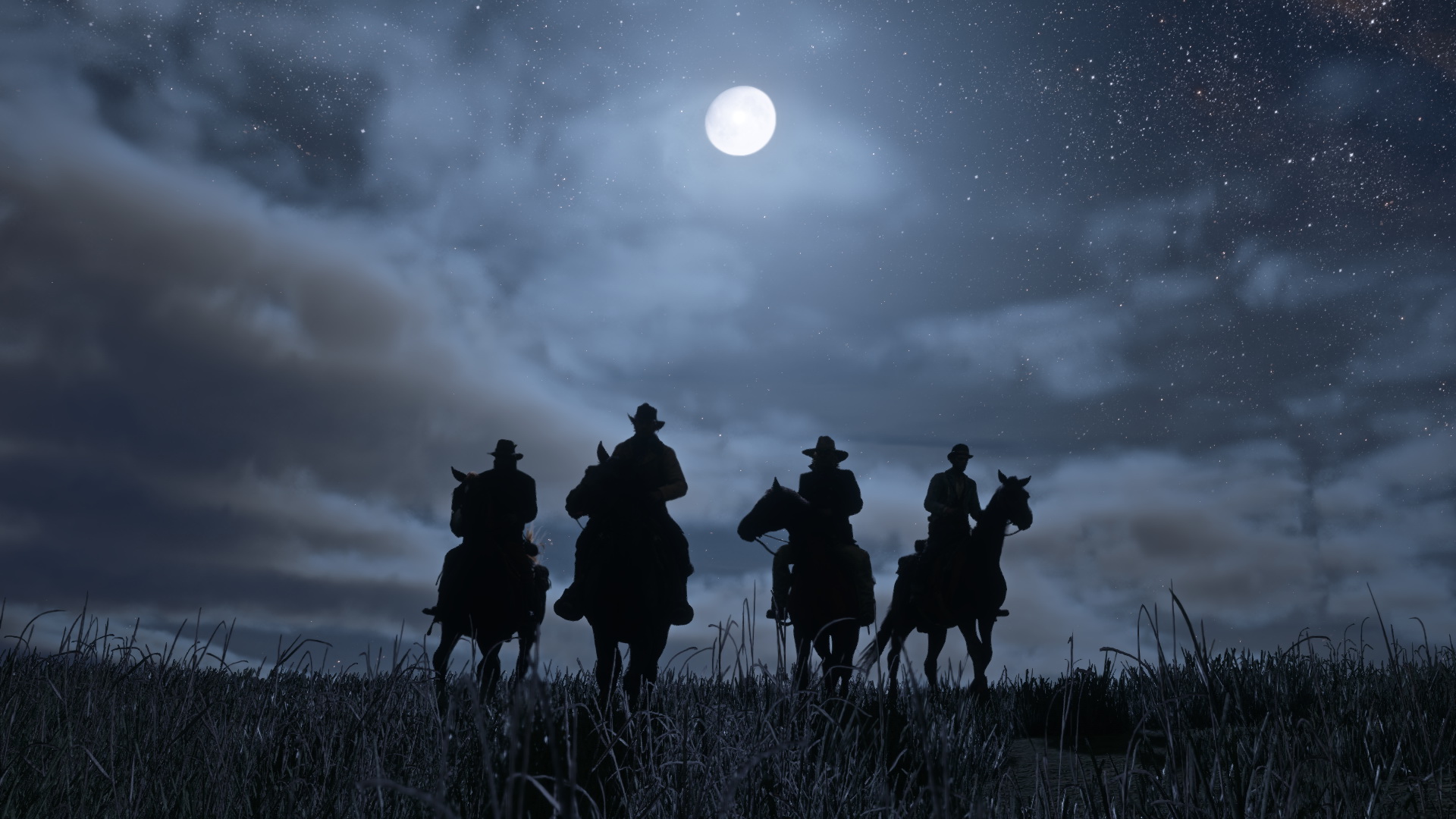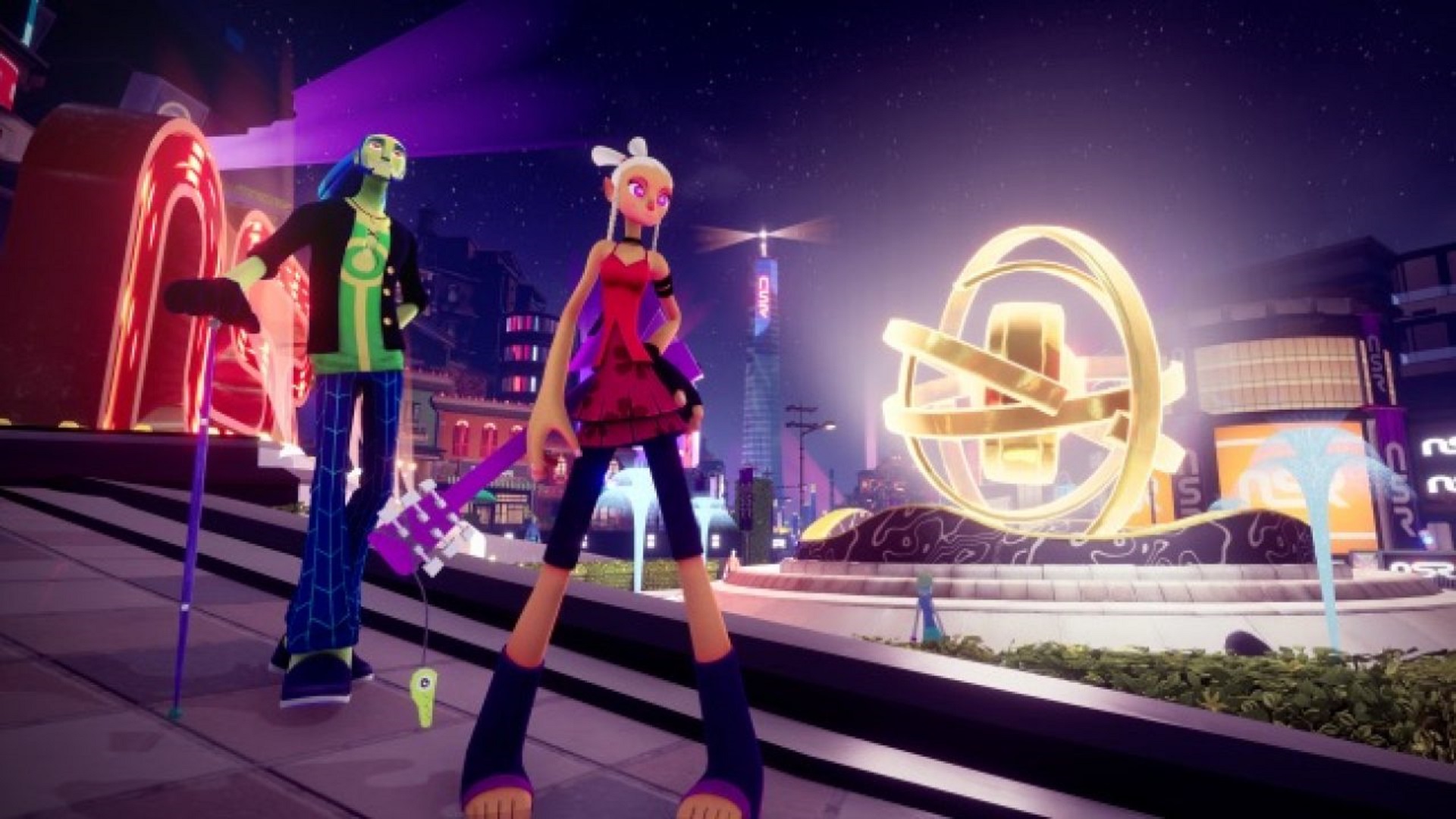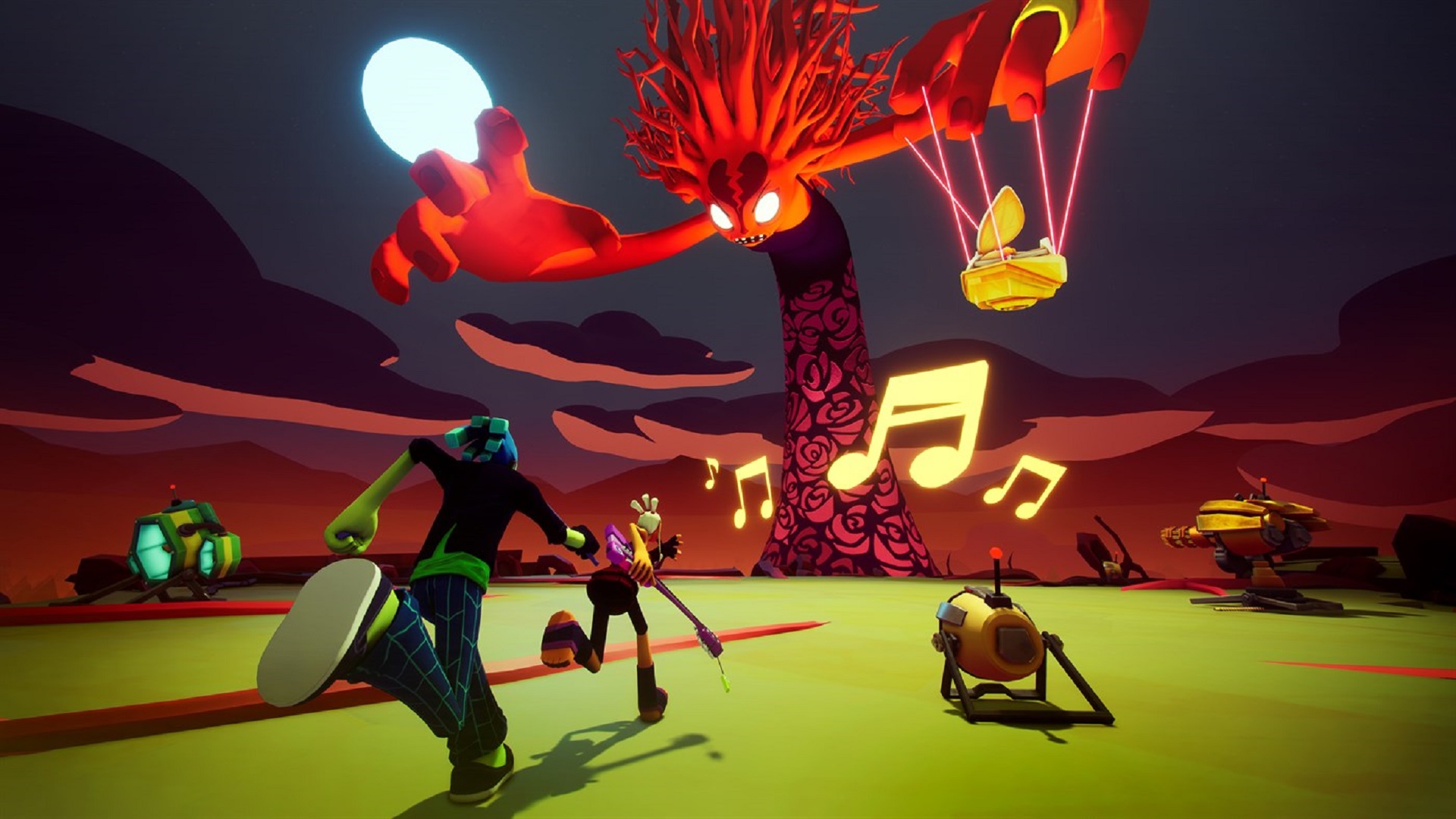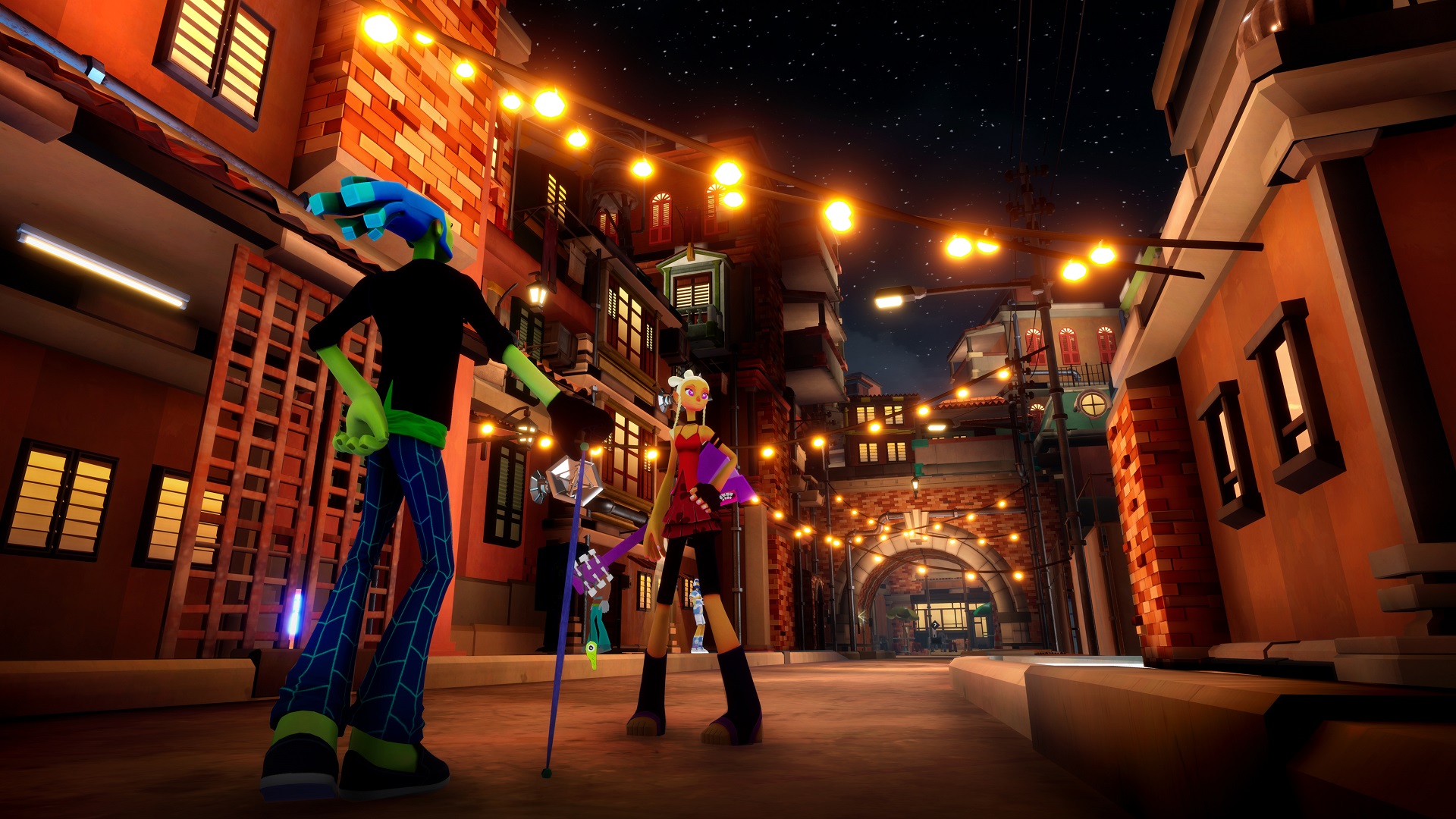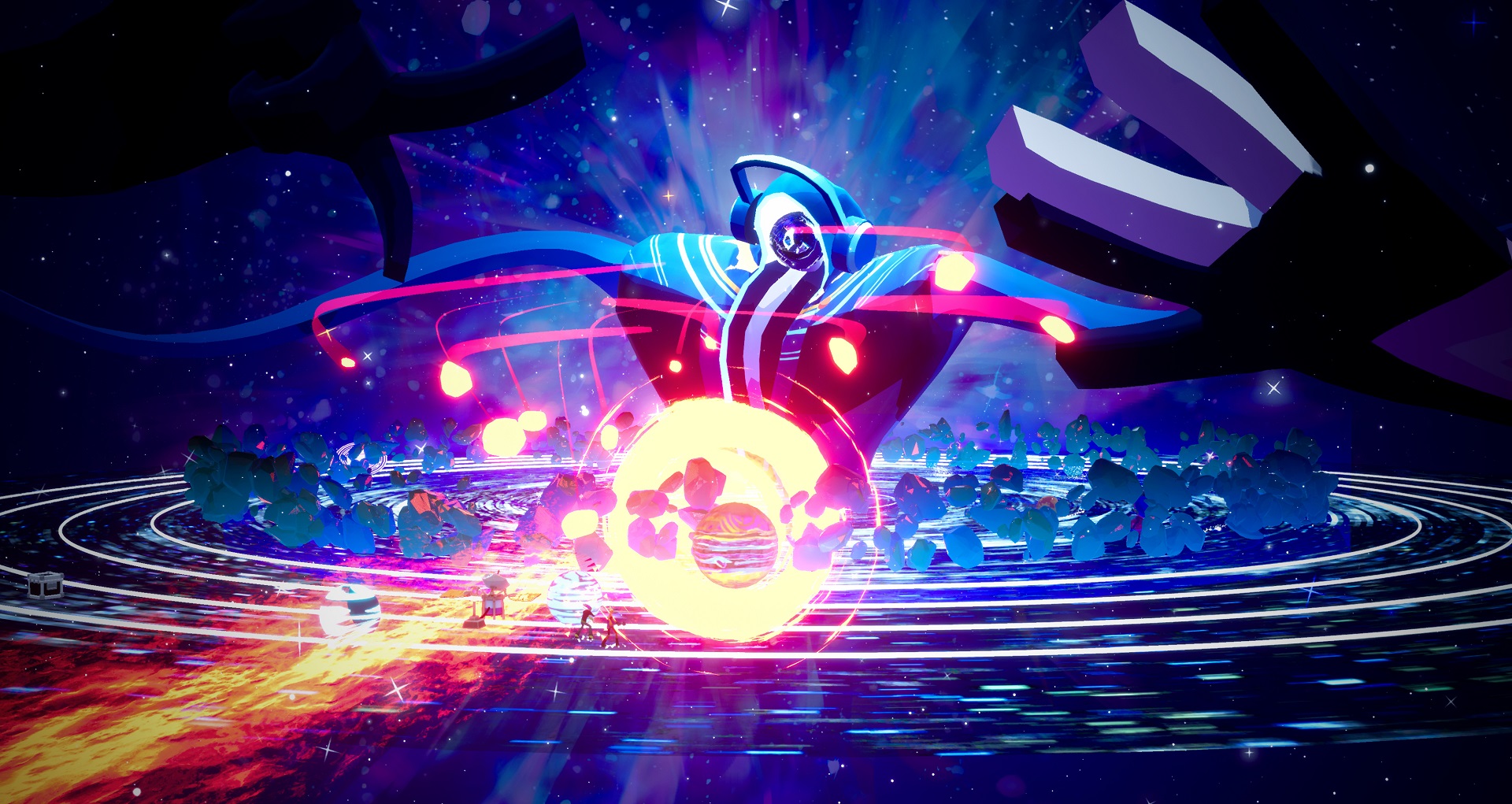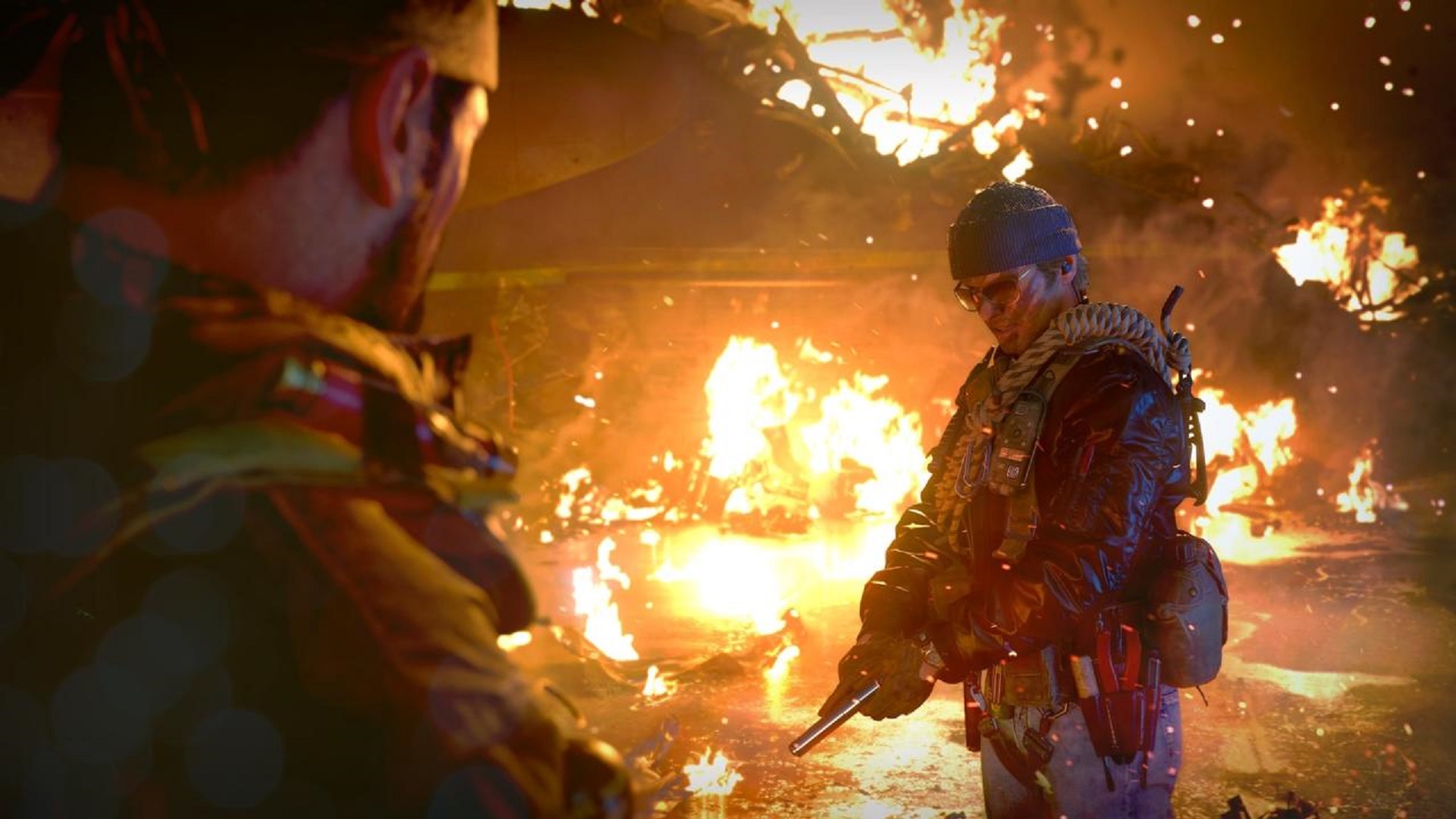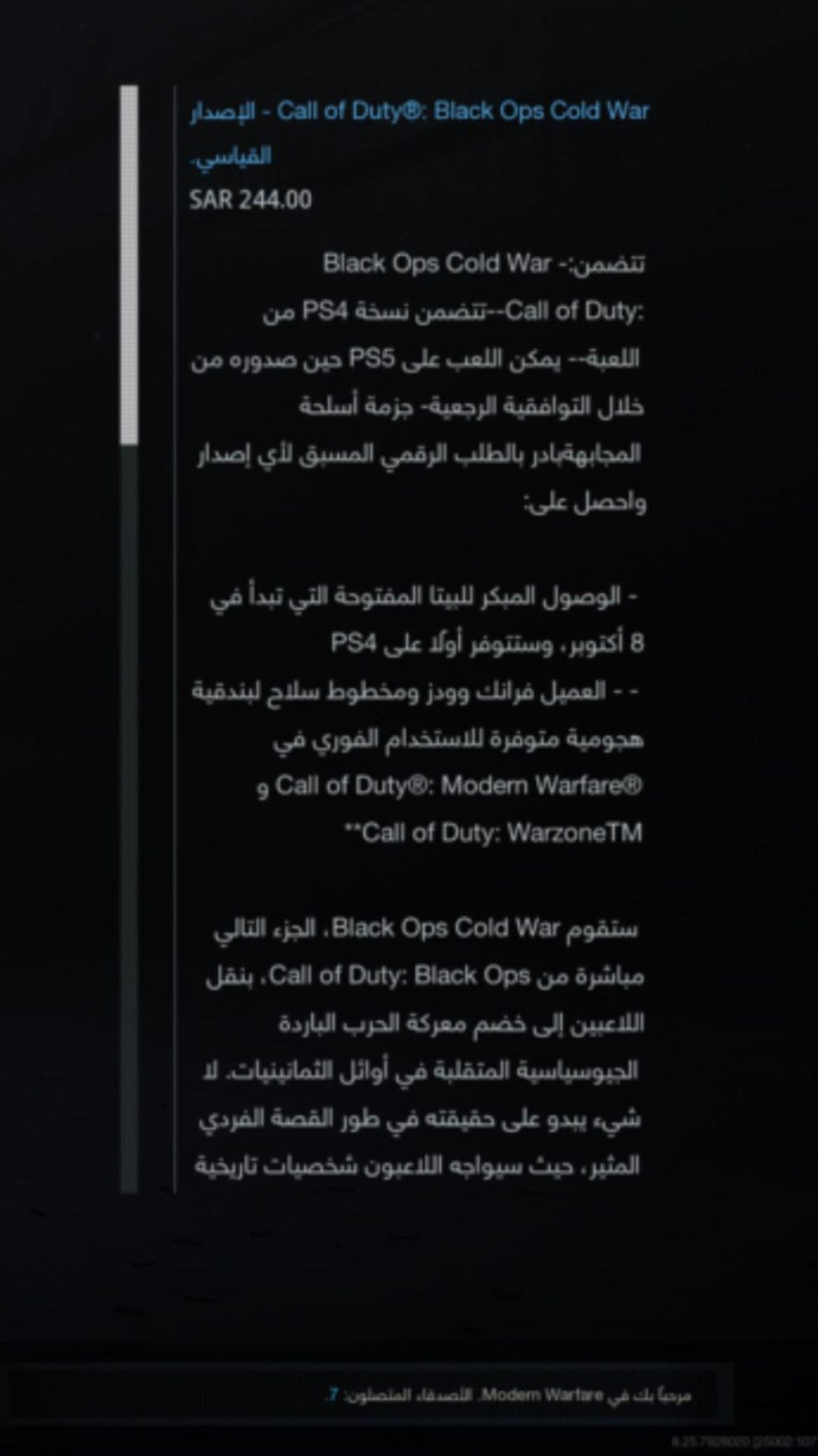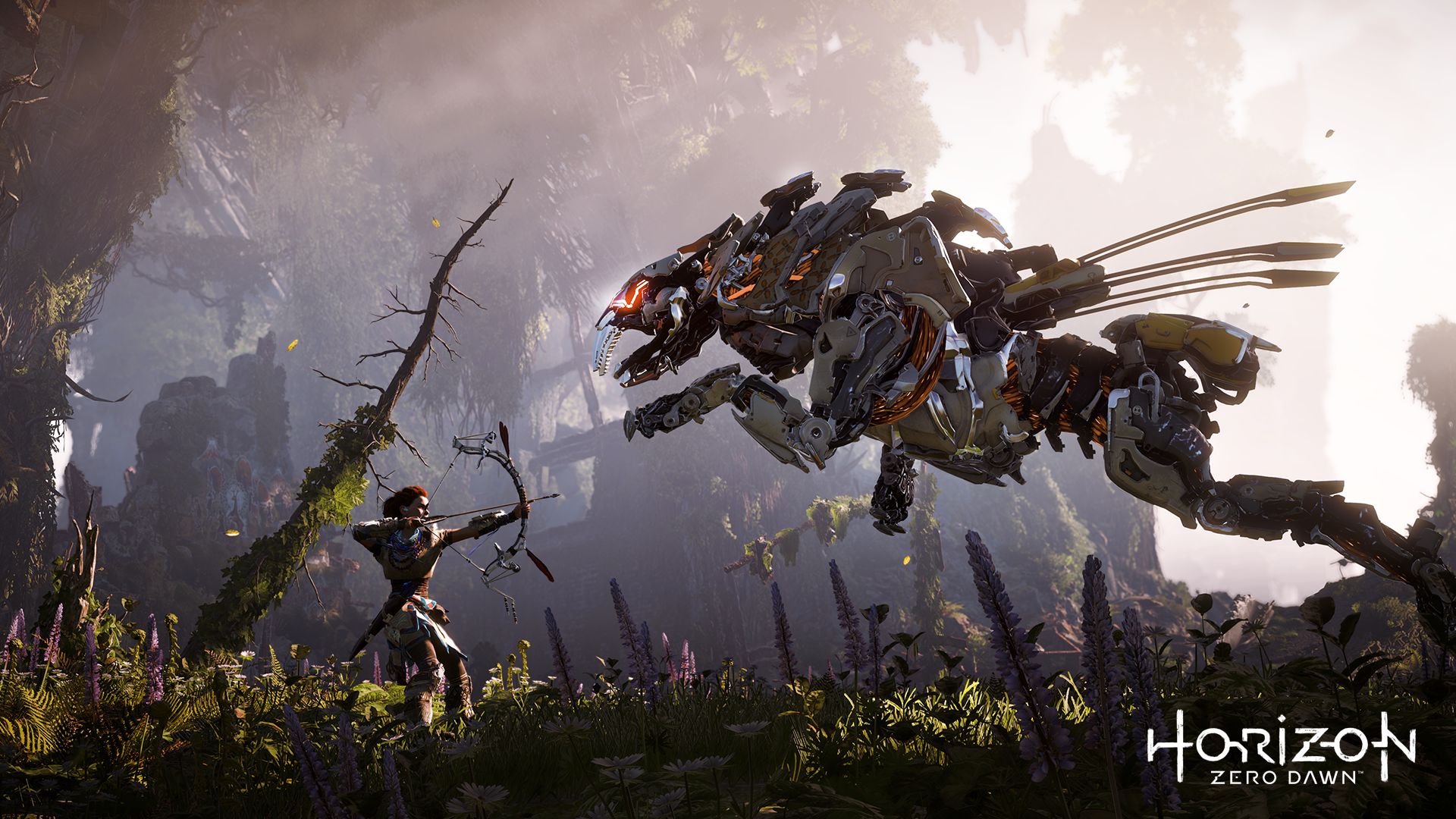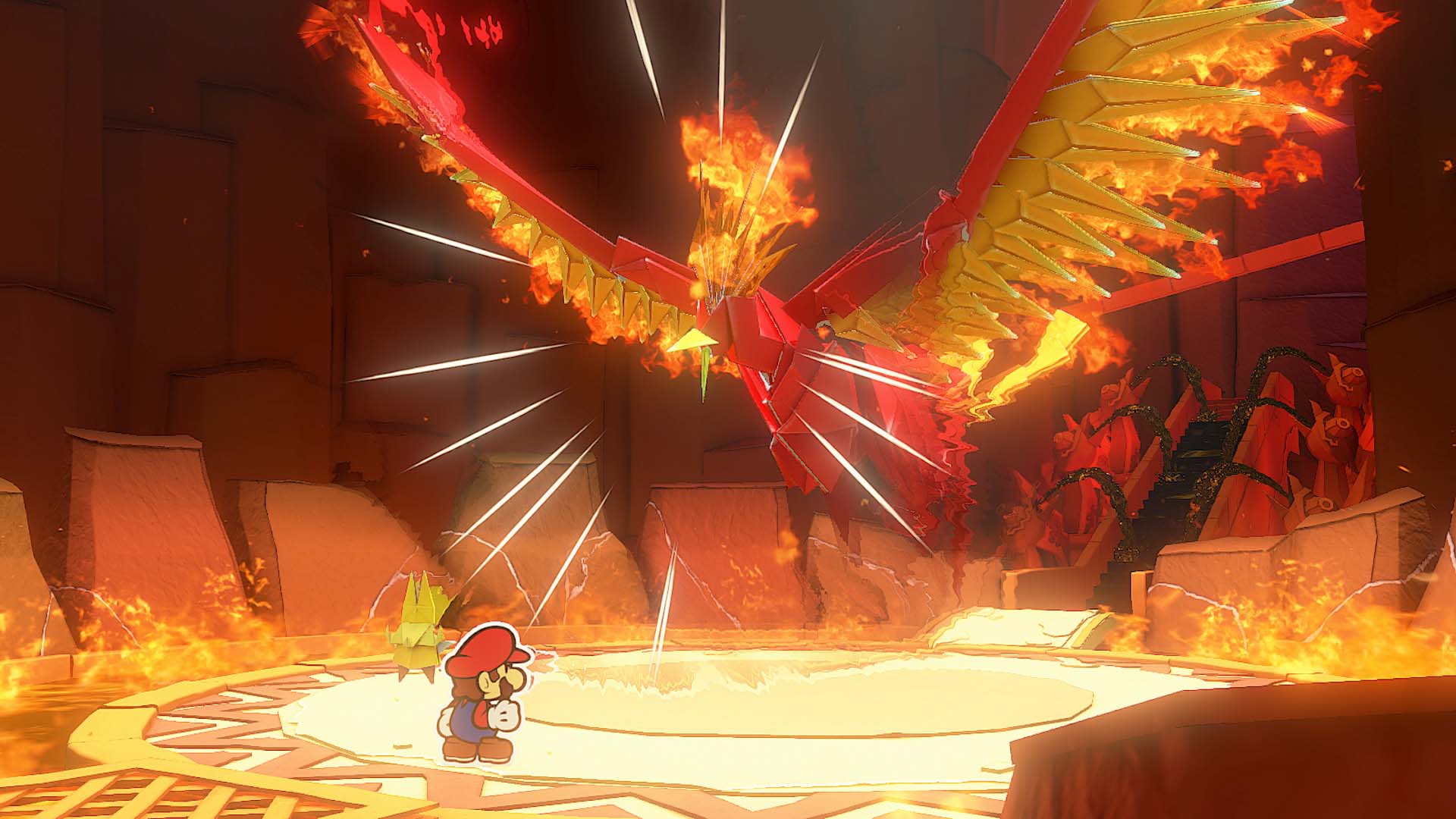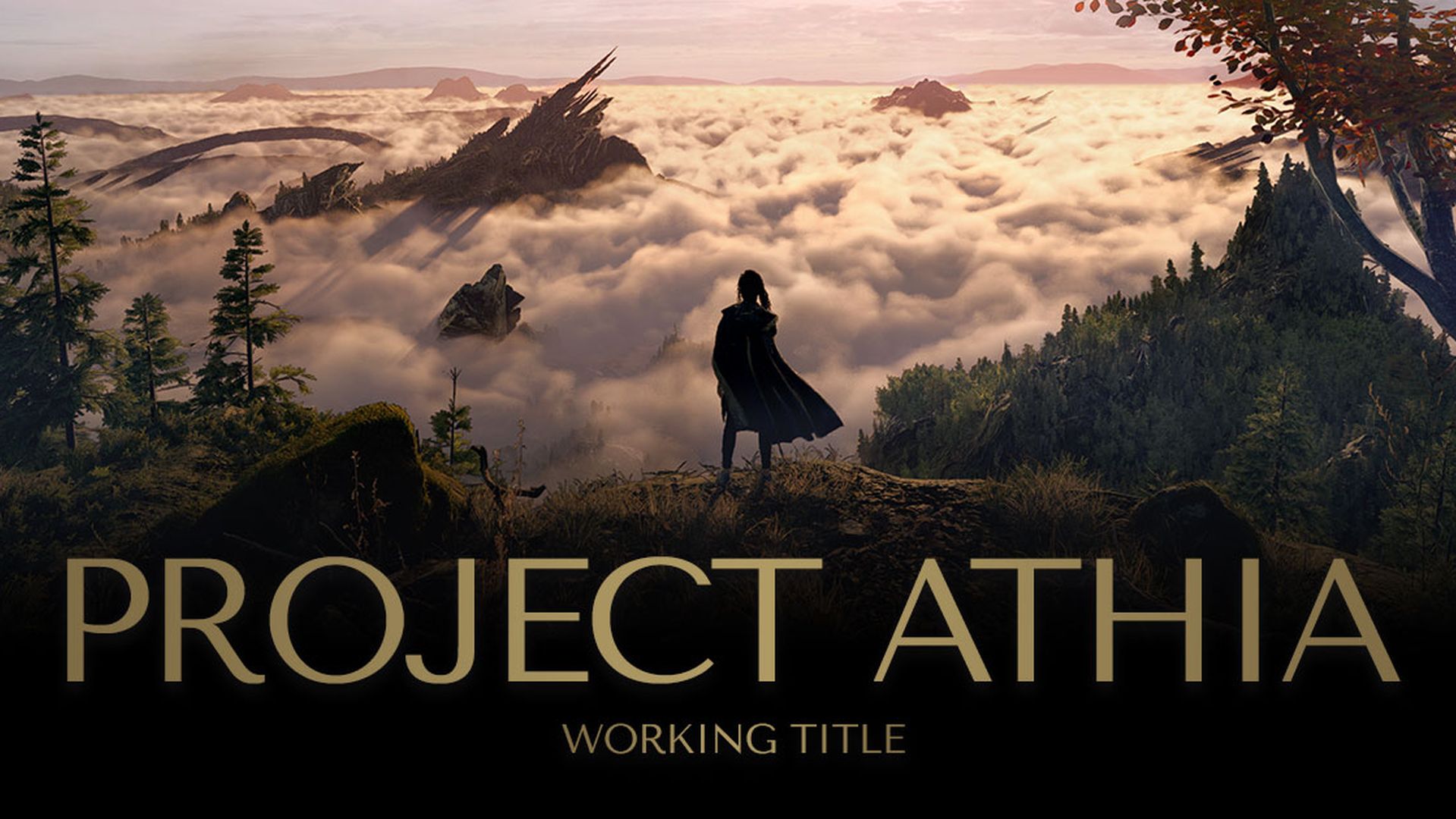The Outer Worlds: Peril on Gorgon Receives New Details in Extensive Gameplay Walkthrough
Obsidian Entertainment's sci-fi RPG The Outer Worlds immediately became a fan-favourite when it came out this year, and if you've had a hankering for more of what it delivered, you'll be getting that soon. Peril on Gorgon, the first of its two planned expansions, releases in just a little over a week, and recently, Obsidian released an extensive gameplay walkthrough to drop crucial details on it.
With developer commentary from the DLC's game director Carrie Patel, the video shows over 11 minutes of gameplay footage. It sets up the expansion's central narrative premise (and reveals some story details while doing so, so avoid watching it if you want to go into it blind), while also showcasing some of the environments, combat, choices, and more the expansion will bring. Check it out below.
The Outer Worlds is currently available on PS4, Xbox One, PC, and Nintendo Switch. Peril on Gorgon will be releasing for PS4, Xbox One, and PC on September 9. A Nintendo Switch release for the DLC is also planned, but doesn't yet have a release date.
Fall Guys Devs Want to "Build Trust With the Community" Before Bringing the Game to Other Platforms
Mediatonic's Fall Guys: Ultimate Knockout is currently only on PC and PS4, but in spite of only being on those two platforms, it's making waves in the industry. The game has seen immense success on both, and given all the buzz it's generation, there's no shortage of Nintendo Switch and Xbox One players who're chomping at the bit to get their hands on it as well.
And while the developers have previously talked about the possibility of bringing Fall Guys to other platforms, it seems that's not going to happen in the immediate future. Speaking during a recent stream hosted by Gary Whitta (transcribed by Pure Xbox), lead game designer Joe Walsh said that for now, Mediatonic are focused on building up a relationship with the Fall Guys community by ensuring that the game is the best it can be on the platforms it's currently on.
"Right now our real focus is on making the PlayStation and PC games as good as they possibly can be," Walsh said. "We really have to build trust with the community now and make sure they believe that we can support this game and make it really good.
"So it's our job now to be like, hey community – we know what you want and we're listening and we're working as hard as we can to try and fix it, and for us to just say, 'now we're going to just focus on bringing it to more platforms', it's not the right thing to do at this point in development."
He added: "That will make us more money, but that's not what we want to do right now. The focus is on building that relationship with the community."
For now, Fall Guys is available on PS4 and PC- you can read our review for it through here. Recently, the game's second season and its medieval theme were teased at Gamescom. You can check out that trailer through here.
Minecraft Dungeons: The Creeping Winter Video Showcases Snow-Covered Action
Minecraft Dungeons' next paid DLC The Creeping Winter is coming up next week and to prepare for the same, new gameplay footage has been released. It's only three and a half minutes but sees Mojang executive producer David Nisshagen talking about what fans can expect. Check it out below.
The Creeping Winter takes players to a new island covered in snow. There are villages, an iceberg and a river that runs through most of the island. A fortress called the Lone Fortress also looms ominously and is likely the setting for the DLC's major boss fight.
Along with fighting off new mobs, players will also earn new weapons, armor and Artifacts. Minecraft Dungeons: The Creeping Winter is currently set to release on September 8th for Xbox One, PS4, PC and Nintendo Switch. A free update will be available on the same day, providing content to non-expansion owners. Stay tuned for more details in the meantime.
Project CARS 3 Interview – Career Mode, Esports, Post-Launch Plans, and More
Project CARS has become one of the biggest names in the racing simulation genre over the last decade, but the newest entry in the series is taking some interesting risks as it looks to broaden its appeal and put less of an emphasis on simulation. That's something that goes hand-in-hand with apprehension from the community, but Project CARS 3 certainly looks promising, from its overhauled career mode to its impressive visuals, and the potential of a finely struck balance between accessibility and authenticity. To learn more about just how it's trying to do that and what else we can expect from the game in its post-launch period and in the esports space and much more, we recently spoke with Joe Barron, marketing and esports manager at Slightly Mad Studios. You can read our full interview with him below.
NOTE: This interview was conducted prior to the game's launch.
"With the new game, we definitely wanted to broaden the appeal of the series, and to introduce new people to a genre that we love. The revamped gamepad handling, career mode, multiplayer, customisation tools and so on are all part of that approach."
One of the notable changes Project CARS 3 has made is veering away from being a 100% simulation experience in an attempt to have a broader appeal. With that in mind, what were the challenges you faced during the game's development in terms of striking the right balance between appealing to fans of the first two games' hardcore simulation and Project CARS 3's bid to be a more accessible experience?
With the new game, we definitely wanted to broaden the appeal of the series, and to introduce new people to a genre that we love. The revamped gamepad handling, career mode, multiplayer, customisation tools and so on are all part of that approach. At the same time, this is still a game that has the Madness Engine powering it. The underlying technology and simulation remain the authentic driving experience that people have come to expect from Project CARS. If you jump straight in with the assists off in tricky weather conditions, you'll find the game as challenging and rewarding as ever, but we also want to guide new players on their journey to becoming sim-racers.
Keeping in line with the previous question, can you talk to us about the assist options in Project CARS 3 and how they cater to both, the hardcore simulation enthusiasts and those looking for a more accessible experience?
The assists in Project CARS have always been rooted in reality, and Project CARS 3 is no exception. From Traction Control to ABS, the tools available to drivers are modelled on those found in real cars, and we've refined them in the new game to make them less intrusive to the driving experience. This time around, they will of course help you out in a pinch, but they don't get in the way of the experience. We also took a long look at the traditional "racing line" assist for learning circuits, and we could see that, for a lot of players, it had become a bit of a crutch, meaning that they over-relied on it and were not really using it as a training option to get faster and better. And that's not just in Project CARS, but across all racing games. So we replaced it in Project CARS 3 with a new corner marker system inspired by real-world track-days. Instead of reacting to a colour changing on a line on the ground, you now learn tracks through dynamic braking, apex, and exit markers, designed to improve your muscle memory for each circuit and teach you about driving technique in a more realistic manner.
What are your plans for Project CARS 3's post-launch support as far as updates and new content are concerned?
As always, we will be reviewing the balance of the game post-launch with the community's feedback, so fans can expect plenty of updates. We also have a Season Pass, so there will be lots of exciting additional cars and tracks coming that we can't wait to start talking about in the near future.
"The overhauled multiplayer modes in Project CARS 3 are really going to open-up the opportunities for us to continue our fantastic track record of uncovering new talent in the sim-racing scene."
The esports scene is obviously something that Project CARS fans are quite invested in. With Project CARS 3, what are the steps you're taking to grow in that area?
The overhauled multiplayer modes in Project CARS 3 are really going to open-up the opportunities for us to continue our fantastic track record of uncovering new talent in the sim-racing scene. We had skill and safety ratings in Project CARS 2, but with Project CARS 3, we have refined the ways in which those stats are calculated, and we're using them for skill-based matchmaking across all of the game modes for the first time as well. From Quick Play to Scheduled Events, this will make online racing in Project CARS 3 fairer and more competitive than ever before. And of course, we'll be backing that up with official tournaments too: we'll have more to say on that as soon as those plans are locked in.
Project CARS 3's career mode has seen a significant overhaul, with extensive progression, car classes, objectives, and more, and it's an improvement that fans of the series are very excited about. When you were setting out to re-envision the career mode, what drove the decision that all these improvements and changes were necessary?
We really wanted to make each player's journey through the game feel more personal, and to let you put your own stamp on your experience. Our previous Career Modes have been about picking one motorsport discipline, sticking with it, and winning every race. This time we wanted players to have more freedom to choose the races and cars that they are most passionate about, and to take the emphasis off the need to come first every time, and shift towards objectives that encourage you to learn more about racecraft—from learning racing line techniques to particular types of overtakes, drafting, and so on. You can forge your own path through the career mode now, while also building you your collection of personalised cars and finding your own driving style.
24 hour cycles and dynamic weather put together are an exciting combination, especially in a racing sim. What's the biggest impact this will have on races in Project CARS 3?
It wouldn't be Project CARS if we didn't have dynamic weather and the freedom for players to setup their races exactly how they like. The biggest impact is of course on immersion: From the tunnel vision you get in the darkness of the night to the concentration you need to avoid any unpleasant surprises in low-grip wet conditions, this is all part of the Project CARS experience. The LiveTrack atmospheric and weather simulation is something that we continue to refine from game-to-game, and we're super proud of it again in Project CARS 3. It's particularly awesome if you're lucky enough to have a PC VR setup.
"We're super excited to see what the new platforms will be cable of, and what new experiences appear, but right now we're just focused on getting Project CARS 3 into the hands of gamers on the current generation of platforms."
The decision to not have microtransactions in the game is obviously a popular one, especially because this is a genre that seems rife for in-game monetization with car packs, cosmetics, and the like. Can you to talk us about how you landed on that decision?
All of us working on Project CARS are gamers at the end of the day, and we want to make games that we ourselves feel inspired to play. Project CARS 3 is about expanding our audience and the sim-racing genre, so it needed to be an inclusive title, focused on the gameplay and the sense of reward and progression. With that in mind, it didn't make sense to us to promote micro-transactions.
Project CARS 3's support for 12K resolution and VR is something that many in the PC community are excited about. Can you talk to us more about that, and what they will add to the experience?
A bit like the weather simulation, 12K and VR are all about immersion. Triple screens are a great way to get that realistic sense of being surrounded by the cockpit of the car. Widening your field of view so that you can see more of your opponents and the road ahead. VR of course takes that a step further with the ability to turn your head in any direction, and combined with the 3D visuals and audio, it makes it that much easier to judge braking distances, apex kerbs, and so on. We continue to improve our support for both of these technologies with each new game we make, and the game's performance in VR keeps getting better and better.
Given that next-gen consoles are right around the corner, have you given any thought to PS5 and Xbox Series X enhanced ports for the game?
We're super excited to see what the new platforms will be cable of, and what new experiences appear, but right now we're just focused on getting Project CARS 3 into the hands of gamers on the current generation of platforms.
It's Time To Make Your Peace With Them, Because Open World Games Are Here To Stay
Around the end of last generation, people were sick and tired of first person shooters and cinematic linear adventures – we had had a glut of those in the PS3/360 era, owing to the success of games (such as Uncharted 2: Among Thieves). Generally, people were hoping for more open ended games that respect player agency more by the end of the previous console generation. And thanks to the success of The Elder Scrolls V: Skyrim, this generation saw exactly that happen – we saw games go open world, wherever possible.
Long running old franchises were reinvented as open worlds – The Legend of Zelda, Metal Gear Solid,, The Witcher, Final Fantasy, Forza, Mass Effect, Ghost Recon, Mirror's Edge – while many of the notable new IP launched this generation were also open world games – The Division, Horizon Zero Dawn, Sunset Overdrive, Ghost of Tsushima, Watch Dogs, Mad Max, Days Gone.Meanwhile, long running open world franchises continued to put out new open world epics – Red Dead, Fallout, Assassin's Creed, Just Cause, Batman, Spider-Man.
And as is usually the case, this overabundance of the genre means that we now have people sick and tired of open world games, longing to return to prescribed linear adventures instead. Many look at the onset of the new generation as hopes for, if not the pervasive return of linear titles, then at least for open world games receding in the background, and giving way to whatever other fad the industry will chase next. However, for those people, I have some bad news – that's not going to happen. Not only are open worlds not going away with the next gen (or beyond), but even more games will continue to go open world.
There are a great many reasons for this, but let's start with the most basic and most obvious – open world games are among the best received (on Metacritic, three of the top four rated games of the generation are open world, and the fourth one has multiple smaller open sandboxes), most acclaimed (four of the six consensus Game of the Year awards for this generation went to open world games), most influential (I don't even need to get into this, given that the reason we have so many open world games to begin with is because of the influence of Skyrim, but also look at The Witcher 3 or Breath of the Wild if you want more proof), and, most importantly (at least for publishers), the bestselling games (GTA5 is the bestselling game ever, Skyrim and The Witcher 3 are the bestselling RPGs of all time, Breath of the Wild is the highest selling Zelda game ever, Ghost Recon Wildlands is the most successful game in its series, Assassin's Creed Odyssey is the most successful game in its series, Spider-Man is among Sony's most successful games ever, Ghost of Tsushima is Sony's biggest new IP launch of this generation).
That last reason is actually more profound than you think – typically, AAA games not made by Nintendo or Rockstar sell a whole lot at launch, and then just trail off into nothingness; with open world games, we have games that continue to stay on charts for months or even years after launch. And not just for Rockstar games like GTA5 or Breath of the Wild, either, but games such as Wildlands, Assassin's Creed Osyssey, Horizon Zero Dawn, The Witcher 3, Skyrim, Forza Horizon 3, these are all games that have seen substantial sales for years after their initial launch. Because open world games by nature allow for new possibilities and scenarios to be discovered, invented, or contrived by the player years upon years after launch. You can't be sure that you've seen everything in an open world after you've finished it – in a good open world game, at the very least, there's always going to be something new you never chanced upon yourself even after a hundred hours into the game.
All of this goes to demonstrate that the anti-open world sentiment is really a very niche, very loud minority pushing back against the popular trend (why they are doing that, we'll get to in a bit). It's evidence that open world games are, in general, overwhelmingly popular, acclaimed, and successful, meaning no developer or publisher has any reason or incentive whatsoever to walk away from them.
Here's the thing, though – open world games are the ultimate expression of what video games set out to do. The whole idea of a video game is to immerse a player within its world and have the player inhabit and interact with that world. Linearity and prescribed progression and interactions existed because of technical limitations – making true open world games on the Nintendo 64 wasn't exactly feasible, for example. But developers want you, the player, to inhabit the worlds they make. They want them to feel so expansive as to feel limitless. They want the player to feel like they can interact with anything, anywhere.
While there are, obviously, many developers who choose to make linear style games because that's what their creative vision dictates, on the whole, open world games are video games achieving the goal they've been working towards ever since we moved away from single screen arcade games on the Atari 2600, and started getting long adventures to draw players in such as The Legend of Zelda, Super Mario Bros. or Final Fantasy way back on the NES. For most developers, an open world is a natural fit to their vision – that's why so many chase the genre.
You can see this even with games or developers that haven't quite gone fully open world yet this generation – even those have started to embrace more openness, where previously they confined the player to more linear spaces. Uncharted experimented with open worlds with The Lost Legacy, while The Last of Us Part 2 goes even bigger with an open world segment early on, while making each of its encounters a free form sandbox. Monster Hunter basically has multiple open world maps within it now with Monster Hunter World. God of War isn't fully open world, but it's embraced openness and player agency, with a wide open central hub full of secrets and hubs that players can explore, and a story that they can choose to defer as long as they want, while they check out the game's not-quite-fully-but-still-pretty-much-almost open world. After a series of hyper linear games, Pokemon includes a vast, open world area for players to explore and traverse.
Developers aren't just doing this kind of thing on a whim. Developing an open world is a monumental undertaking, requiring an insane amount of effort and coordination. Even just having open world elements (like the examples we just went through) increases the work load exponentially – because the truth is, any time you expand the number of variables you have to account for, you have to take into account the permutations and combinations of all those variables and their possible interactions that come with that. You don't just decide to go open world because it's the cool thing to do, it is an insane amount of workload (not to mention the money needed to actually do all those things). Developers are doing this because they want to – because, as I said previously, in general, open worlds represent the ultimate realization of video games as a medium.
… well, good open worlds do, in any case. I do empathize with the people who feel jilted by open world games, or wish their favorite franchises would go back to being linear again, because a badly done open world is appalling, being full of tiresome busywork and repetition that can burn anybody out. And unfortunately, due to the complexity of making open world games as discussed previously, bad (or even underwhelming) open world games are regrettably common.
But I do feel that players who decide to direct their ire at the entire genre and style of games are basically throwing out the baby with the bathwater. You're not tired of open world games, you're tired of bad open world games (and that's fair). But those bad open world games aren't representative of the genre as a whole. Just as you wouldn't use The Order 1886 to prove why linear games are bad and should go away, pointing to Ghost Recon Breakpoint or RAGE 2 to decry open world games entirely is misguided – especially since, on the whole, we are starting to get more good open world titles than bad ones now.
Then there are players who feel going open world has led to the loss of what they once loved in their beloved franchises – Metal Gear fans are unhappy with the diluted storytelling of The Phantom Pain, Mass Effect fans are unhappy with a whole lot of things in Andromeda that it's easy to assume wouldn't have been as bad if the developers hadn't had to work on its open world, Mirror's Edge fans contend that going open world ruined Catalyst.
All of those gripes are fair, and even true – Mirror's Edge would definitely have been better served being a linear game, for example, while the diametrically opposite demands of sequential storytelling and open world games means that open world titles will have to compromise on either their openness, or their storytelling, or both, to some extent (meaning Metal Gear fans do have a point). But, again, I feel like this is more down to the individual game or developer, and their execution of their vision, than it comes down to the open world itself. Who in their right mind would have hated a Mass Effect Andromeda that didn't have all the shortcomings it did, while also allowing you to explore these vast, wonderful alien planets on your own terms? Would Metal Gear fans truly have found The Phantom Pain disappointing if Kojima had been allowed the chance to actually, you know, complete the story?
Even with long running series, it is possible to go open world and largely bring most fans over with the transition – look at Zelda or The Witcher or Monster Hunter (and while there are critics of Breath of the Wild, The Witcher 3, and Monster Hunter World among their fanbases, the overwhelming sentiment towards those games is that of universal acclaim).
So, to everyone who feels jaded with open world games and wants them to go away, I posit: it's not open world games you hate. It's bad, or poorly executed, open world titles you have a problem with. And that's totally fair – but open world games are not going away. They're too successful, too popular, and too much of a realization of video games as a medium, for that to happen. They're only going to get more commonplace come next generation (where a lot of the improvements made to next gen consoles, such as their solid state drives, seem to almost be made with open world games in mind, in fact).
So open world games aren't going away, and given how many people enjoy them, they shouldn't. It's time to make your peace with them – and even if you can't, even if you hate them with a burning passion, it's not as if there's any shortage of incredible linear games to play through either. Just this year we've had Final Fantasy VII Remake, Persona 5 Royal, and Ori and the Will of the Wisps. There's enough great games to go around for everybody – stop wishing for other people to not get what they like just because you don't.
Note: The views expressed in this article are those of the author and do not necessarily represent the views of, and should not be attributed to, GamingBolt as an organization.
No Straight Roads Review – Battle of the Bands
If a game has repetitive, shallow gameplay and core mechanical issues, it doesn't take long for me to grow a fundamental dislike for it. In that regard, No Straight Roads is a pretty unique case. Metronomik's debut title is a game that suffers from both those things (and more), and yet I can't help but smile every time I think about it. This is a game with a lot of heart, one that's bursting with ambition and creativity- it's just a shame that it's held back by a number of significant issues.
In No Straight Roads, you play as Mayday and Zuke, an indie rock duo that's trying to make it big in Vinyl City. It's a city that lives and breathes music- it's governed by a musical organization known as No Straight Roads (or NSR) that uses EDM music to generate electricity that powers the whole city. But it's also an organization that does it to the exclusion of all other types of music, and that's something that the rock-loving Mayday and Zuke cannot tolerate. When they witness the corruption and elitism that plagues NSR at the highest levels early on in the game, they decide to start a musical revolution, taking back the city district-by-district by beating various NSR artists – each specializing in a sub-genre of EDM – and bringing power and musical variety back to the people of Vinyl.
"This is a game with a lot of heart, one that's bursting with ambition and creativity- it's just a shame that it's held back by a number of significant issues."
It's a ridiculous premise, and No Straight Roads knows it. In fact, it goes all in on it. This is a game that wears its heart on its sleeve, and nowhere is that more apparent than how blatantly it puts music front and center constantly, often to the point of being cartoonish. But No Straight Roads embraces that cartoonish nature, and with its combination of a bright and colourful art style, memorable and lovable characters, and a soundtrack that slaps, it does so very successfully.
The starring duo personifies that better than anything else in the game. The energetic and hotheaded guitarist May and the calm and chill drummer Zuke make for an excellent pair. Their personalities are very different, but they fit together like two pieces of a puzzle, and they're supported by an excellent cast of secondary characters, whether that's the artists of NSR you're taking down one-by-one or the people of Vinyl City who're helping you do that. The interactions that all of these characters have with each other are great as well, providing genuine heart and charming humour in equal measure, which is a testament to the game's solid writing. Best of all is the voice acting, which bleeds excessive personality into each character that populates that Vinyl City, especially the ones who take center-stage in this story.
The real star of the show in No Straight Roads, however, is obviously the music. With a game that puts music under such a bright spotlight in every way imaginable, it would be fair to say that a good soundtrack is among the most crucial aspects of the experience, and this is an area where No Straight Roads is an unabashed success. From the various styles of EDM music, to the drum and guitar-heavy rock riffs, to even banging rap battles, No Straight Roads has an absolutely excellent soundtrack. It is, fittingly enough, the game's biggest strength.
The soundtrack really shines in the boss battles, which make up for the bulk of the game. Each boss battle has one predominant style of music associated with it, depending on which EDM artist you're taking on, but as you progress through each fight and start wearing your foe down, the music dynamically changes, and rock slowly starts bleeding into its electronic tunes, growing louder and more prominent as you get closer and closer to victory. It creates a powerful effect, and serves as an excellent marriage of music and gameplay progression.
"From the various styles of EDM music, to the drum and guitar-heavy rock riffs, to even banging rap battles, No Straight Roads has an absolutely excellent soundtrack. It is, fittingly enough, the game's biggest strength."
These set-piece boss encounters are bursting with creativity in other ways as well, with each boss fight almost feeling like musical homages to the wacky and psychedelic shenanigans of something like Psychonauts. Each EDM artist you take on is essentially an exaggerated personification of the type of music they specialize in, and their boss fights reflect that, too. When you're taking on a DJ obsessed with the vast stretches of the universe, you fight against his towering figure as large planetary disco balls orbit around him and asteroids are hurled in your direction. When you take on a digital idol, you find yourself in a virtual world where you have to take down several shields before you can damage her, one each put up by her character designer, voice actor, animator, and video editor. Every boss fight is bonkers and holds nothing back in terms of creativity, and each is a visual and aural delight.
So No Straight Roads clearly has some notable strengths- it looks great, it sounds great, and it tells an engaging story thanks to its excellent cast. But when you look beneath this admittedly dazzling surface, you find a deeply flawed – and ultimately mediocre – game.
No Straight Roads tries to fuse its beat 'em up combat with rhythm game trappings, but it doesn't do it very well. Enemies attack to the beat of the music, and paying attention to musical cues is how you dodge their attacks. That sounds great on paper, and when it works – when you're in tune with the soundtrack and are dodging incoming attacks flawlessly – it feels great. The problem is that that isn't a strict requirement. You can brute force your way through most combat encounters with button mashing, which cheapens the whole premise.
It doesn't help that the combat itself is very shallow, not only because there isn't a whole lot you can do other than shooting projectiles, using your basic melee attack, and the couple of special moves you can map to your triggers, but also because there isn't a ton of enemy variety, and the few enemies that you do run into don't pose much of a challenge. There is a skill tree that allows you to unlock or upgrade new moves, and you can slap stickers onto your instruments for passive buffs, but both of these systems make a negligible difference, and end up feeling like an afterthought. You can also switch between May and Zuke during combat (when playing solo), but the differences between how the two play and control feel very superficial. Zuke's attacks are faster, May's are more powerful- but the game doesn't ever do much to make that difference feel meaningful.
"No Straight Roads clearly has some notable strengths- it looks great, it sounds great, and it tells an engaging story thanks to its excellent cast. But when you look beneath this admittedly dazzling surface, you find a deeply flawed – and ultimately mediocre – game. "
Other issues rear their heads as well. The camera in particular is quite problematic. While you're given full control of the camera in the free-roaming sections in Vinyl City, combat encounters all impose fixed camera angles on you. This is a problem because you can't always judge depth accurately, which leads to both, inaccurate dodging and attacks that don't find their mark- and it happens frequently enough to become a nuisance. The camera issues are made even worse when you're forced to engage in light platforming sections – of which there's quite a few in the game – and these issues are further exacerbated by floaty and unreliable movement.
The result is a combat system that feels all too shallow- and going hand-in-hand with that shallowness is tiring repetition, brought on by No Straight Roads' structure. The boss encounters I mentioned earlier are easily the best part of the game, but bridging the gap between each of them are light exploration sections in Vinyl City, following by short "approach" sections preceding boss fights that see you fighting grunts and regular enemies. The focus on combat here is the obvious issue- perhaps the game would feel less repetitive if it had better, more satisfying combat. As it exists, it starts wearing thin very quickly.
Exploring Vinyl City is also an inconsistent experience, but it's still somewhat better. You can interact with a diverse cast of NPCs, collect qwasa tubes that you use to power up dead lights and electronics to restore electricity to the city (which helps you gain more fans, which in turn unlocks more tiers in your skill tree), or look for the aforementioned stickers that grant passive buffs. The city is fairly small, but it looks great. It's bright and colourful, and each new district that you unlock brings a distinct visual flavour with it- so at least it's a treat for the eyes.
But much like the rest of the game, though Vinyl City has superficial strengths, exploring it feels mechanically meaningless. You get far too many qwasa tubes, even though powering up electronics doesn't require too much, which means you're always left with a surplus. Powering them up doesn't make too much of a difference either, because you don't get too many fans by doing this, and defeating bosses remains the best way to net large quantities of fans. Collecting stickers is fun for a while, but once you realize that the buffs they provide are pretty insignificant, you start losing interest.
"Perhaps the game would feel less repetitive if it had better, more satisfying combat. As it exists, it starts wearing thin very quickly."
The sewers that May and Zuke call their home are much more consistently charming though. This home base makes for a great hub location- it's where you return after every major mission to feed your pets, interact with NPCs, talk with your teammates about your next major step, upgrade your weapons and level up your characters, or just play minigames on the arcade machine. As you progress through the story, you add more rooms to the hub that serve different purposes. Thanks to all of this and more, I found myself looking forward to returning to the sewers quite often.
No Straight Roads is a game of ups and downs, but at the end of the day, one thing is abundantly clear- it's a game with a lot of superficial strengths, and significant gameplay issues. But calling its strengths "superficial" seems unfair, because they're so crucial to the kind of experience this is- the music is absolutely killer, the bright and dazzling art style is a sight to behold, and the characters, their writing, and their voice acting are also highlights of the experience. The problem is that your active engagement in this experience comes through mechanics and systems that are either unpolished, or shallow, or repetitive- or worst of all, all three.
This game was reviewed on the PlayStation 4.
Call Of Duty: Black Ops Cold War Beta Start Date Potentially Leaked
It took much longer than usual, but we finally got an unveiling of this year's Call of Duty game, Black Ops Cold War. The game will return to the Black Ops franchise, taking place after the events of the first title, and will also be the first Call of Duty to launch for the PS5 and Xbox Series X. As is tradition, there will also be a beta, and we may have gotten an earlier look at that date than intended.
As you can see below, the Arabic PSN store put up a listing for the game, which says the open beta will begin on October 8th (thanks to COD Tracker for translations). Nothing official has been said about it via Activision, but overall that's pretty close to previous beta schedules.
Call of Duty: Black Ops Cold War will release on November 13th for PlayStation 5, PlayStation 4, Xbox Series X, Xbox One and PC. Make sure you have some space ready, too, as the initial file size will be over 100GB. The beta will most likely begin October 8th, first on PS4, for those who preorder the game and the multiplayer reveal is set for September 9th.
Horizon Zero Dawn PC 1.03 Patch Is Live Now, Has Fixes For Crashing, Snow Deformation, And More
It was big news when it was announced that Horizon Zero Dawn would be coming to the PC. The game is a first party title from Sony, and is one of the first major releases the company has allowed to come to the platform. But unfortunately, while the core of Guerrilla Games' open world title was intact, the port was plagued by a variety of technical issues. Since its launch, multiple patches have been released for it, and now we have another one to try and fix even more.
The newest patch, 1.03, addresses multiple issues. Probably the biggest one is a multitude of different types of crashes you'll potentially encounter related to the GPU, AI, and more. There's also other thing here, such as fixing the snow deformation that wasn't working properly in the Frozen Wilds area, progression problems, 4K scaling, and a lot more. You can see the patch notes below, or read them through here.
Horizon Zero Dawn is available now on PlayStation 4 and PC. The 1.03 patch for PC is live now. The developer has said fixing the PC version is one of their highest priorities, so most likely more updates will come.
Crash Fixes
Fixed a GPU resource leak which could build up over time and cause instability.
Fixed a GPU hang that caused a crash that could occur when Asynchronous Compute was used.
Fixed a crash when AI would try to aim at an invalid position.
Fixed a crash that could occur when sound obstruction was calculated in highly detailed areas.
Fixed a crash that would occur when moving the game to a monitor with different DPI settings while in the menu.
Fixed an issue where some players would crash on startup due to incorrect memory allocation.
Fixed a GPU hang that would occur when the window was resized to a very small size.
Progression Issues
Fixed a progression issue where some players would remain a child and not transition to adult Aloy.
Functionality Issues
Fixed an issue where snow deformation was not working correctly in the Frozen Wilds area.
Fixed an issue where the Concentration skill could stop working.
Other improvements
4K Scaling – Fixed an issue where the game wouldn't render at 4K properly on boot.
Frame Rate Limiter – Improved Frame Rate Limiter functionality to be more accurate.
Localization – Localized specific error messages.
Windows Version Check – The game checks if Windows 10 Build 1809 or above is used (lower versions cause instability in DirectX 12).
Minimum Spec Warning – Improved minimum spec warning message and options.
Saving Issue Warning – Clarified text that is displayed when you do not have access to your My document folder or enough disk space.
Player Profile Validation – The player profile is now validated and corrupt profiles (caused by manual editing or tweak tools) rejected.
Paper Mario hasn't been an RPG series for a while, with every game since The Thousand Year Door moving further and further away from how the series originally started out. It's fair to say that with the recently released Paper Mario: The Origami King, Intelligent Systems finally figured out how to properly realize their ambitions for innovation and non-RPG gameplay in Paper Mario games (and it helps that the indie-developed RPG Bug Fables that released earlier this year is basically the perfect Paper Mario replacement), but there are many who want the series to go back to its RPG roots.
Will that ever happen? It seems the developers themselves don't know the answer to that question. Speaking in an interview with Eurogamer Germany (translated by Nintendo Everything), Paper Mario series producer Kensuke Tanabe said that though the goal with each new instalment is to try new and innovative things, the developers haven't decided whether that's something they'll keep doing with the next Paper Mario game, or if they'll take it back to being an RPG.
""When developing Paper Mario: Sticker Star, one of our goals was to move away a bit from the traditional RPG style," Tanabe said. "Nintendo has another RPG series starring Mario and we wanted to distance ourselves from it by making an adventure game with a focus on solving puzzles. Even though we've stuck to that decision so far, we haven't decided yet whether or not we will keep doing so in the future. Personally speaking, I want to keep developing Paper Mario games that are both innovative and unique."
Tanabe elaborated on his point about innovation and uniqueness, saying this his personal philosophy as a developer is to keep delivering new kinds of gameplay experiences.
"The game development philosophy I've adopted from Mr. Miyamoto is developing innovative and unique gameplay systems," he said. "I'm not opposed to the fans' opinions. However, I view my game development philosophy as separate from that. If we used the same gameplay system wanted by the fans again and again, we wouldn't be able to surprise them or deliver new gameplay experiences. We always try our best to exceed expectations in surprising ways. At the same time, there's no guarantee that we'll always succeed in doing that – so it's a real challenge."
Scores of Paper Mario fans will tell you that the series desperately needs to go back to its RPG roots, especially with the other RPG Mario series, Mario and Luigi, seemingly having no future anymore. That said, if Intelligent Systems do decide to keep trying new things, hopefully, they'll continue the upward trajectory they kicked off with The Origami King.
You can read our review for Paper Mario: The Origami King through here.
30 PlayStation 5 Video Games to Look Forward to – Part 2
It's not enough that there are 15 big titles coming to the PS5 in the coming years. So we decided to look at 15 additional titles, ranging from console exclusives to titles releasing on PS4 as well as some multiplatform games worth checking out on next-gen consoles. Without further ado, let's get into it.
Project Athia
A timed console exclusive for PS5 (which is also coming to PC), not much is known about Project Athia. It's an open world title, as Square Enix president Yosuke Matsuda confirmed, and is set in a fantasy world with the protagonist having extensive mobility. Luminous Productions of Final Fantasy 15 fame is developing it and there's ray-tracing support. Regardless of exclusivity, it's going to be a long wait until its release, but that's a recurring theme for many next-gen titles.
